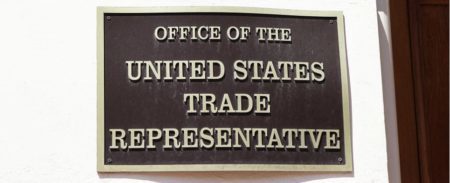To: Office of the United States Trade Representative
FROM: Joseph Marion, ASCDI President
Docket Number USTR-2019-0012 Request for Comments to Compile the National Trade Estimate Report on Foreign Trade Barriers
Submitted via the Federal eRulemaking Portal: https://www.regulations.gov
Submitted on: October 10, 2019
The Association of Service and Computer Dealers International and the North American Association of Telecommunications Dealers (“ASCDI”) is pleased to have this opportunity to provide the US Trade Representative with an opportunity to expand international trade for small and medium size enterprises (SMEs).
ASCDI is a non-profit trade association representing almost 300 companies and an estimated 10,000 employees, engaged in the resale and servicing of both new and used computer and telecommunications equipment. Our membership includes independent resellers and original equipment manufacturers.
The majority of our members are US based SMEs. SMEs are the backbone of economic growth, job creation and a stronger middleclass and the U.S. Trade Representative’s Office should address trade barriers that have a disproportionate impact on them.
In the past, discussions on how to achieve that goal have centered around facilitating trade by, for example, increasing transparency, reducing regulatory burdens and streamlining customs procedures. Those are all very desirable outcomes, which we support. Such measures will benefit everyone – big business as well as SMEs.
However, trade facilitation is not very meaningful to SMEs if unfair, one-way trade barriers restrict their market access. And that is the case today regarding US companies wishing to resell technology into the EU. Today, the EU’s trademark rules give EU trademark owners the perpetual right to block imports into the EU of genuine new or used branded products if the first sale of the product was not done within the EU. Therefore, products which were sold by the brand-holder in the US can NEVER be exported to the EU for resale without the brand-holder’s permission.
U.S. law, however, exhausts a trademark holder’s rights once a first sale occurs anywhere in the world, allowing EU resellers to export those products for resale in the U.S. Thus, the playing field is not level and U.S. resellers are a at a distinct disadvantage compared to their EU counterparts.
In recent years, large corporations have used that power to eliminate import competition by independent SME resellers of a range of new and used products, including computer and telecommunications equipment. That rule, which does not serve the purpose of trademarks, is a huge market access barrier disproportionately impacting small-to-midsize technology resellers, whether they sell on eCommerce platforms, through other resellers, or directly to end-user customers.
Eliminating such market access barriers is not only the right thing to do, it would also provide a concrete example of how the US Trade Representative’s Office will truly expand market opportunities for SMEs both in the EU and the U.S., and potentially increase transatlantic SME trade by tens of billions of dollars.
The US Trade Representative’s Office should focus on the tough issues that stifle competition from SMEs by blocking or diminishing their market access. Unless and until it does, the public perception of trade agreements will continue to be that such agreements are really for large corporate interests. And broad public support for trade will continue to diminish.

